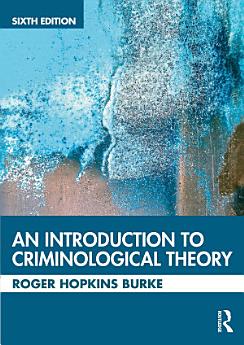An Introduction to Criminological Theory: Edition 6
About this ebook
All major theoretical perspectives are considered, including:
- classical criminology,
- biological and psychological positivism,
- labelling theories,
- feminist criminology,
- critical criminology and left realism,
- situation action theories,
- desistance theories,
- social control theories,
- the risk society, postmodern condition, and terrorism.
The new edition has been updated and revised over seven parts to include full chapters on key topics, such as Bourdieau and criminology, narrative criminology, cultural victimology, southern theory and criminology, green and species criminology, critical race theory, convict and abolitionist and convict criminologies, and ultra-realist criminology. These key issues are discussed in the context of debates about the fragmentation of modernity and the postmodern condition: the rise of political populism, risk, surveillance and social control, conspiracy theories, post-truth society and speculation about living in post–COVID-19 society, and the future of neoliberalism.
Supplemented with chapter summaries, critical thinking questions, policy implications, a full glossary of terms and theories, and a timeline of criminological theory, this book will appeal to undergraduate and postgraduate students of criminology, sociology, and politics, and is essential reading for advanced students of criminology looking for a way to engage with contemporary themes and concepts in theory.
About the author
Roger Hopkins Burke is Visiting Professor at the University of Derby and an independent consultant. He is the author of numerous books and articles in the areas of criminology, criminal justice, and social philosophy with vast teaching and research experience.






